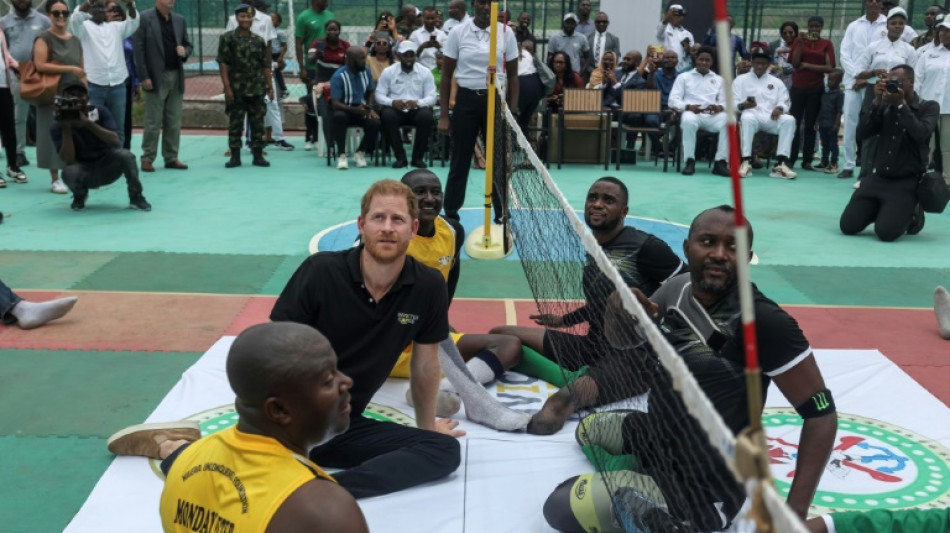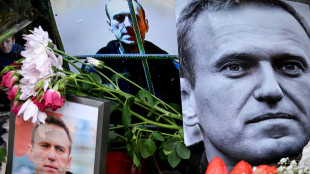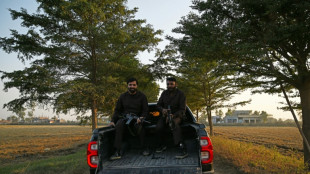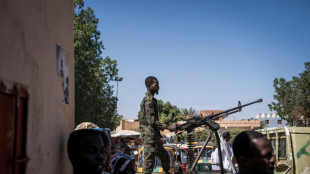
In Nigeria for Invictus, Prince Harry plays volleyball with veterans

On a three-day visit to Nigeria to promote his Invictus Games, Prince Harry on Saturday played a seated volleyball match with army veterans, most wounded in battle against the country's Islamist insurgency.
The Duke of Sussex arrived with his wife Meghan on Friday in the capital Abuja where they visited a school for an event on mental health in a trip that also saw the prince meet wounded Nigerian soldiers in the northwest.
At an officer's mess complex in Abuja, Harry's team dressed in yellow played off in an exhibition against a team led by Nigeria's chief of defence staff, the country's top commander.
With chants of "Team Harry, Team Harry" when they scored, the prince's team took an early lead with players seated on foam mats, some missing legs.
But they lost the match 25-21 to the commander's squad Team CDS.
On the Duke's team was former Nigerian soldier Peacemaker Azuegbulam, who lost his leg in combat in the northeast, and became the first African to win gold at the Invictus Games in Germany last year.
"It's an honour for Nigeria and for Africa to have Prince Harry over," he told AFP before the match.
Before Nigeria, Prince Harry was in London on Wednesday to mark the 10th anniversary of the games.
As with all his trips to the UK since he moved to the United States in 2020, his visit prompted renewed speculation over a reconciliation with his family. But he did not meet with his father King Charles.
Harry, a former army captain who served as a helicopter pilot in Afghanistan, founded Invictus in 2014. Since then the games have grown, promoting rehabilitation through sports.
He was invited to visit by Nigeria's military command. Chief of Defence Staff General Christopher Musa has praised the experience of Nigerian troops at the Invictus Games.
On Friday, Harry travelled without his wife to Kaduna in Nigeria's northwest to visit a military hospital and speak with troops wounded in combat.
On Sunday, the couple will travel to the country's economic capital Lagos to take part in a basketball event and a fundraiser.
Nigeria's military forces are battling armed groups on several fronts.
A grinding jihadist insurgency in the northeast has killed more than 40,000 people and displaced another two million more since 2009.
In northwestern and central states, heavily armed criminal gangs known locally as bandits carry out mass kidnappings for ransom and raid villages from camps hidden deep in remote forests.
W. Winogradow--BTZ

 London
London

 Manchester
Manchester
 Glasgow
Glasgow
 Dublin
Dublin
 Belfast
Belfast
 Washington
Washington
 Denver
Denver
 Atlanta
Atlanta
 Dallas
Dallas
 Houston Texas
Houston Texas
 New Orleans
New Orleans
 El Paso
El Paso
 Phoenix
Phoenix
 Los Angeles
Los Angeles



